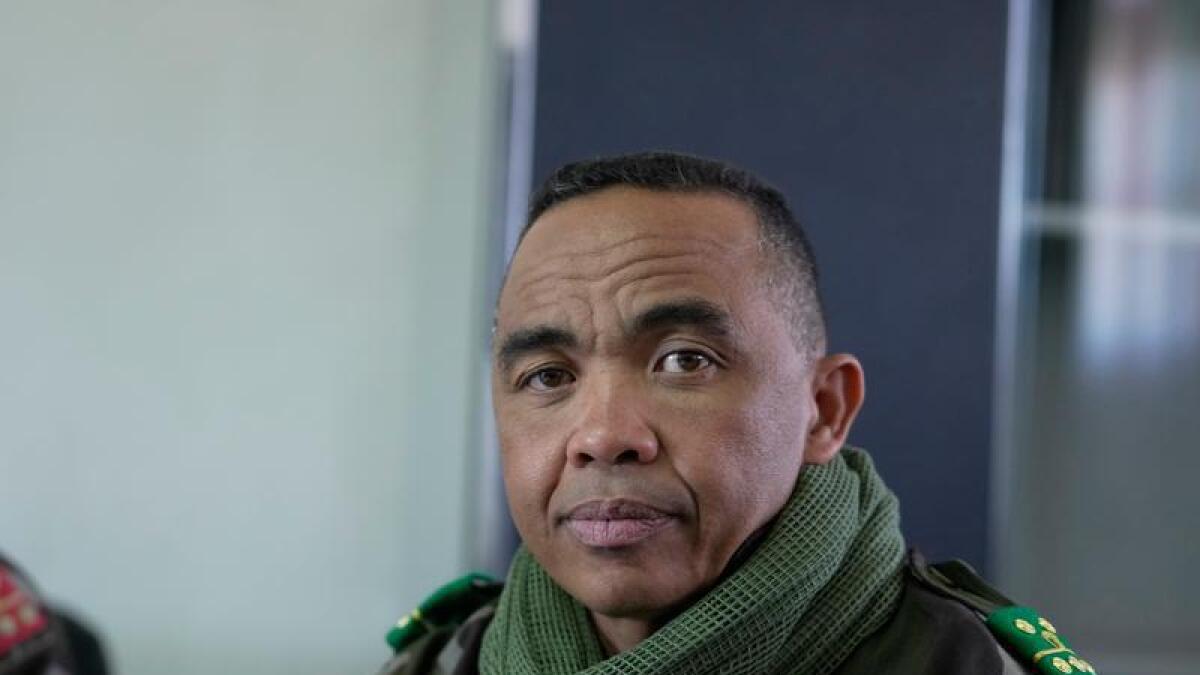
Randrianirina Sworn In as Madagascar’s President After Youth-Led Protests

 :
| Updated On: 17-Oct-2025 @ 2:58 pm
:
| Updated On: 17-Oct-2025 @ 2:58 pmSHARE
Madagascar has embarked on a rocky new political era with the swearing-in of Colonel Michael Randrianirina as president, only days after a coup by the military that followed street protests led by youngsters and the dramatic removal of President Andry Rajoelina. A ceremony at the High Constitutional Court in Antananarivo on Friday formalized a swift series of events that started with street demonstrations about deteriorating living standards and ended in Rajoelina's going into exile.
The crisis developed against the backdrop of weeks of protests, fueled mainly by the island's young people, over acute shortages of electricity and water. The demonstrations escalated into violent clashes, killing at least 22 and injuring more than 100, the United Nations reported. The CAPSAT military unit, led by Randrianirina, became a turning point when it declared on October 11 that it would no longer follow orders to shoot demonstrators. This policy shifted the direction of the revolt, bringing CAPSAT widespread applause from protesters and clearing the path for Randrianirina's ascension to power.
On Tuesday, the parliament of Madagascar impeached Rajoelina on charges of "desertion of duty" for abandoning the country, plunging the government into chaos. By Friday, the Constitutional Court had officially declared Randrianirina as head of state, a development he called "a historic turning point" for the country. In an address to the nation, the 51-year-old colonel vowed to preside over radical reforms to transform Madagascar's political, socio-economic, and administrative structures. He credited the youth with spearheading changes and vowed to write a new constitution, revise electoral laws, and hold elections and referendums within 18 to 24 months.
The inauguration was witnessed by top military officials, politicians, Gen Z-led protest movement members, and international delegations from the United States, European Union, Russia, and France. Randrianirina called for cooperation, stating his desire to name a consensus prime minister and seek broad consultations in the establishment of a transitional government.
In defiance of assurances, Randrianirina has come under international criticism, with the United Nations and others suspicious of what looks like another African military-backed transition. He has refuted staging a coup, pointing to the Constitutional Court's authorization of his position. Rajoelina's faction has strongly opposed the process, deeming the court's ruling unconstitutional and marred by procedural failures.
Rajoelina's dramatic flight highlighted the precariousness of the crisis. His office confirmed he left the country the same weekend CAPSAT joined protesters, saying he was afraid for his life. Media reports subsequently indicated he was flown out on a French military plane to Réunion before continuing on to Dubai. His flight is the third such time a Malagasy president has escaped into exile upon being overthrown, following Didier Ratsiraka's flight in 2002 and Marc Ravalomanana's in 2009.
Madagascar's turn-over is part of a lengthening list of military coup d'états in ex-French colonies since 2020, such as Mali, Burkina Faso, Niger, Gabon, and Guinea. The island nation in the Indian Ocean, with a high rate of biodiversity and natural resources, is still among the poorest countries in the world, with approximately 80 percent of its 32 million inhabitants living in poverty.
As the nation embarks on this uncertain transition, analysts perceive risk and opportunity. Global players like the African Union and Southern African Development Community (SADC) announced fact-finding missions and invoked civilian input into the process. French Foreign Minister Jean-Noel Barrot called for Madagascar's youth to be fully engaged to ensure a peaceful, sustainable resolution.
For the time being, Randrianirina's leadership has a challenging route ahead: to reconcile foreign criticism, internal divisions, and the ambitions of a mobilized young population. Pledges of reform and elections within two years have Madagascar at a crossroads, its fragile democracy again pressed by turmoil and military intervention.